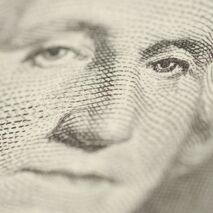
OPEC Sells the Dollar
The nations of the Organization of Petroleum Exporting Countries are selling U.S. Treasuries at the quickest pace in more than three years, according to U.S. Treasury Department data. Concerned analysts predict a dollar sell-off coupled with rising interest rates.
In the three months ending in November 2006, oil-exporting nations including Indonesia, Saudi Arabia and Venezuela sold 9.4 percent of their U.S. government debt—a significant amount, considering these countries own more than $100 billion worth.
Over the past few years, oil producers have become very important dollar supporters, rivaling the United Kingdom, and even China and Japan.
Since most oil is sold in dollars, rising oil prices meant that opec countries’ dollar reserves ballooned. In fact, during 2006 alone, oil producers amassed a whopping $500 million in dollar-denominated savings. Fortunately for Americans, the dollar’s historic role as a stable store of wealth influenced many of the world’s oil exporters to either save those dollars or recycle them into U.S. Treasuries.
However, some economists worry that mounting dollar sales and slowing Treasury purchases indicate the dollar is losing its reputation as a stable reserve currency.
“The dollar has been subjected to a great amount of exchange-rate volatility, and it’s not a good store of value anymore,” said Joseph Stiglitz, a Nobel laureate and economics professor at Columbia University in New York. “There will be a significant sell-off.”
In many cases, dollar reserves are being replaced with euros. However, oil-producing nations will likely also “convert some of their reserves into gold,” according to Dorothee Gasser, a Middle East and Africa economist at ing Bank nv in London. Either way, it’s “bearish for the dollar.”
opec members are not the only countries diversifying away from the dollar. Central banks in China, Romania, Italy, Russia, Kuwait and Venezuela have all recently announced intentions to reduce dollar-denominated assets.
Reduced dollar support from China, if felt in its full intensity, would be just about the biggest blow to the dollar imaginable. China is the second-largest holder of U.S. debt and has one of the largest U.S. dollar reserves of any nation. Although China’s central bank has announced its intention to cut its dollar holdings, most analysts do not predict a major dollar sale by China, yet. However, during the first 10 months of 2006, the Chinese central bank did trim purchases of U.S. Treasuries by 1.7 percent.
The bottom line for America is that prolonged dollar sales mean the Federal Reserve will need to keep interest rates high or even increase them to support the dollar—not good news for the economy. Yet if America doesn’t defend the dollar, it runs the risk of angering its many creditors who are loath to see the value of their dollar holdings decrease along with the dollar’s value.
That’s the trouble with debt: You become beholden to your creditors. America is the world’s biggest debtor, and indications are it will soon pay the price.
